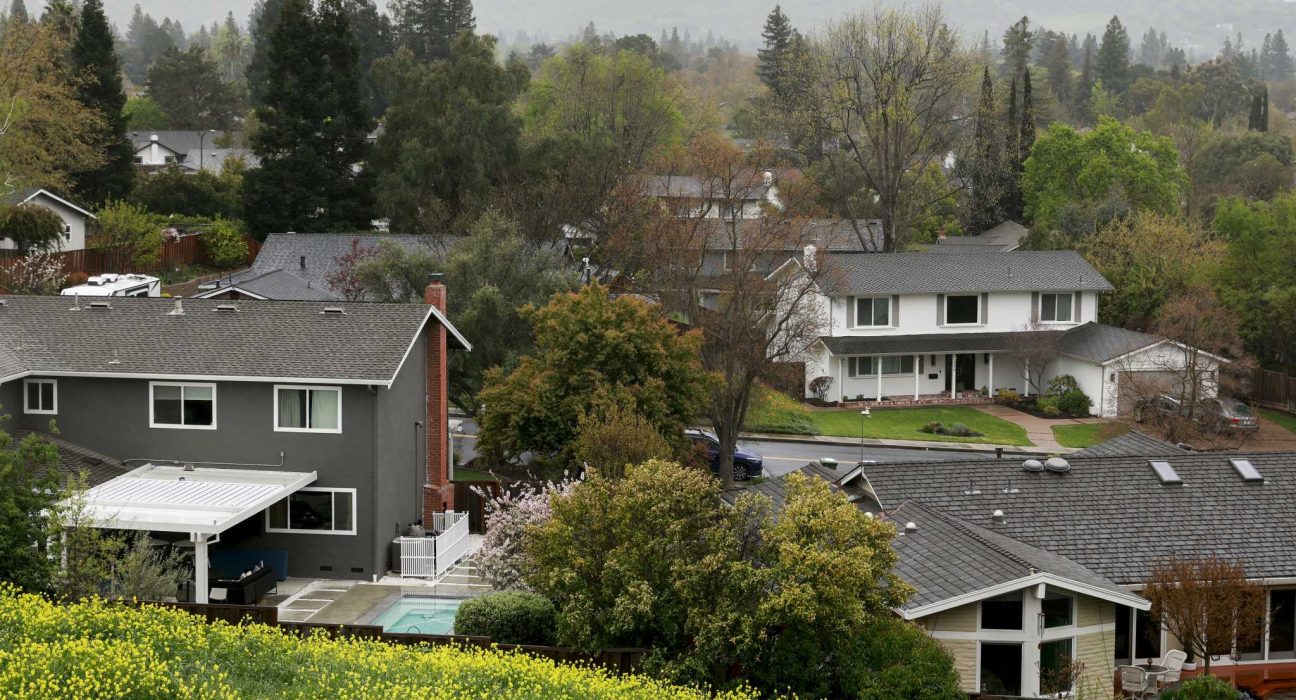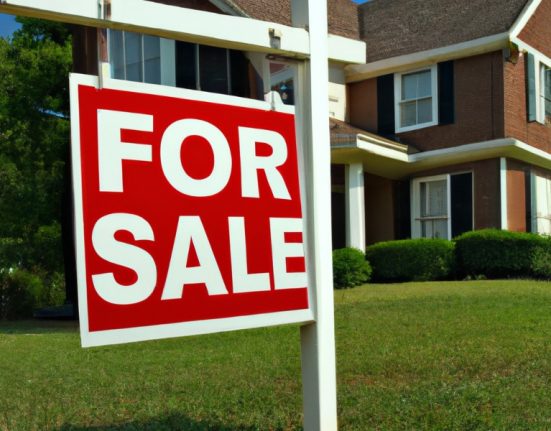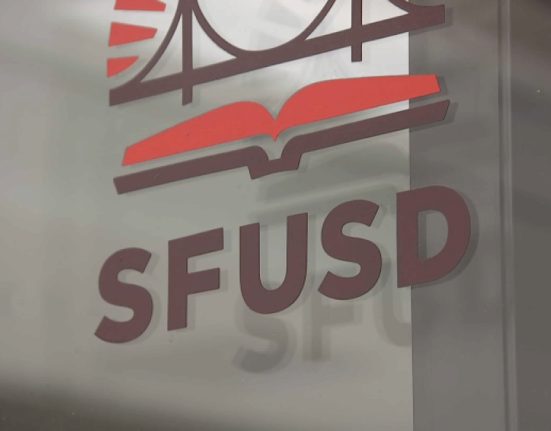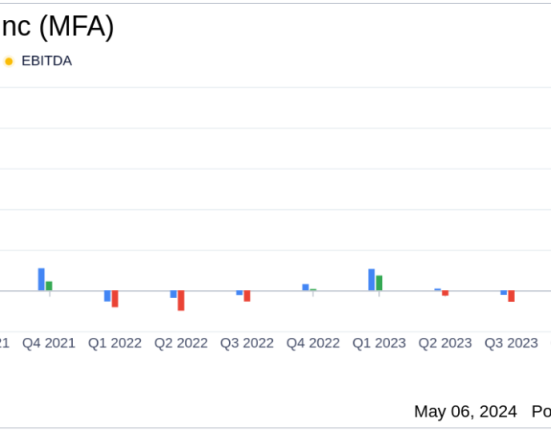Just over 77% of existing mortgages in California are below 4.2%, according to new research from the Federal Housing Finance Agency. Meanwhile, the average 30-year fixed mortgage rate recently climbed to 7.17%.
Jessica Christian/The ChronicleIf you’re in California, there’s a strong chance you might be — one of the fortunate holders of a 3% mortgage rate, that is.
The ultra-low mortgage rates of 2020 and 2021 set off a homebuying frenzy across the state, particularly in the Bay Area — and many also took the opportunity to refinance. That has now left the state’s housing market with the most dramatic “lock-in effect” in the country as homeowners stay put with their low rates.
Article continues below this ad
Just over 77% of existing mortgages in California are below 4.2%, according to new research from the Federal Housing Finance Agency. Meanwhile, the average 30-year fixed mortgage rate recently climbed to 7.17%.
For the many Californians who have a low rate … what now? Should you pay it down faster?
Welcome to Hella Expensive, a column designed to help readers navigate the financial aspects of living in the Bay Area. I’ll be keeping an eye on current issues, trends and what’s going on with the overall economic outlook — but I also want to hear from you. Send your financial questions and concerns to me through the survey below, or email me at kellie.hwang@sfchronicle.com.
Your mortgage as asset
A recent Wall Street Journal column makes the case that, as rates rise, your 3% mortgage actually makes you richer than you think you are: “You still owe the money. But apply the logic used in the market, and there’s been a transfer of well over $1 trillion in wealth from banks and bondholders to borrowers as rates have soared — a gain in wealth widely ignored by the beneficiaries.”
Article continues below this ad
It’s a wonky take that puts your personal situation in the context of the bond market: If homeowners with low rates “marked their mortgages to market prices,” they’d add thousands of (invisible) dollars to their net worth. Of course, changing one’s finances or behavior based on theoretical value isn’t something likely to be advocated by any financial adviser. But the overall point stands: Your mortgage isn’t just something you have to pay every month. For those with low rates in a world where rates are rising, it’s actually an asset.
There are also more tangible ways that a low-rate mortgage has likely added to people’s wealth.
“Those low rates have enabled many to save more for their goals” and have “inflated the personal balance sheet of many California homeowners,” said Brian Stormont, financial adviser and managing partner at Insight Wealth Strategies in San Ramon.
He points out that low rates also fueled a robust housing market that benefited many homeowners as values rose to new heights. In some areas, home values have calmed as rates have risen, but in many areas across the state, they have stayed level or continued to rise.
A double-edged sword
At the same time, the combination of low mortgage rates plus California’s Proposition 13, which prevents big increases in property taxes, has meant many homeowners stay put — even when there may be significant lifestyle upsides to moving.
Article continues below this ad
“When families outgrow their houses, or when empty nesters would benefit from downsizing to smaller houses, they find themselves stuck,” Stormont explained. “It would be too expensive to ‘right-size.’ ”
Even if you are technically saving more money, a home is an expense rather than an investment for many people, says Rick Valenzi, certified financial planner and founder of Financial Zen in San Francisco.
“You can’t buy groceries or take vacations with your home equity,” he said. “So home expenses — while often rationalized as investments by homebuyers — often end up being a consumption expense.”
In the Bay Area, the prevalence of low rates has cooled the housing market so far, but Stormont says it’s possible that if rates stay elevated, markets across California could become more cutthroat.
“Selling a home that has that very low-rate mortgage is going to be very hard to want to do, particularly given today’s interest rate environment,” Stormont said. “That’s likely to keep housing inventory held back, which will likely keep prices elevated.”
Article continues below this ad
Should you pay down a 3% mortgage?
With a low-rate mortgage, it may seem tempting to pay off your mortgage faster. Experts say this is generally not a good idea, and should only be done under specific circumstances.
Don’t pay off your mortgage unless you “can give a convincing explanation” — and eliminating debt is not a good enough reason, said Holden Lewis, home and mortgage expert at NerdWallet.
“Making early payments on a 3% mortgage is similar to making an investment with a 3% return,” he said. “If you believe you can get a higher return on your investments than your mortgage rate, it’s better to invest the money.”
Invest that money you might have used on an extra mortgage payment, Valenzi advised, noting that the historical return of the S&P 500 is 10%. Even a high-yield savings account can now pay more than 4%, he added.
Article continues below this ad
“If you save the money you would have used to make an extra mortgage payment, you’ll make at least an extra 1% return on your money,” he said.
What about tax benefits?
The mortgage interest deduction is another reason you might want to avoid paying down your mortgage faster. In California, it’s good on home purchases of up to $1 million, versus the federal allowable amount of $750,000.
For example: If a homeowner has a 3% mortgage with a 20% effective tax rate, then the mortgage is costing them 2.4% after factoring in the deduction. If they have a high-yield savings account earning 5%, they’re better off keeping the savings and not paying down the mortgage, Stormont explained.
“Of course they’re even better off if their savings is earning an even higher return,” he added. “That difference adds to your overall wealth over time.”
It’s not uncommon for California residents to have mortgages above those caps, Stormont said, so the “deduction capability gets reduced.”
“Where someone has the financial ability to pay down their mortgage faster, it fundamentally means they have excess cash, either from savings or cash flow,” he said. “They then have a capital allocation decision and need to decide on the best place to invest their money.”
Valenzi said the tax deduction helps add to a homeowner’s wealth because it increases their cash flow by saving on taxes. But only if it’s saved.
“The way we think about the deduction is it further dilutes the return on investment of paying down a mortgage,” he said. “If your mortgage is 3.5%, when you factor in the deduction it’s more like 3%. So by paying off that mortgage early, you’re locking in a 3% rate of return on your money.”
He added: “A 3% return only keeps up with inflation, so from that frame paying down your mortgage is actually detrimental to your wealth.”
Reach Kellie Hwang: kellie.hwang@sfchronicle.com; X: @KellieHwang







